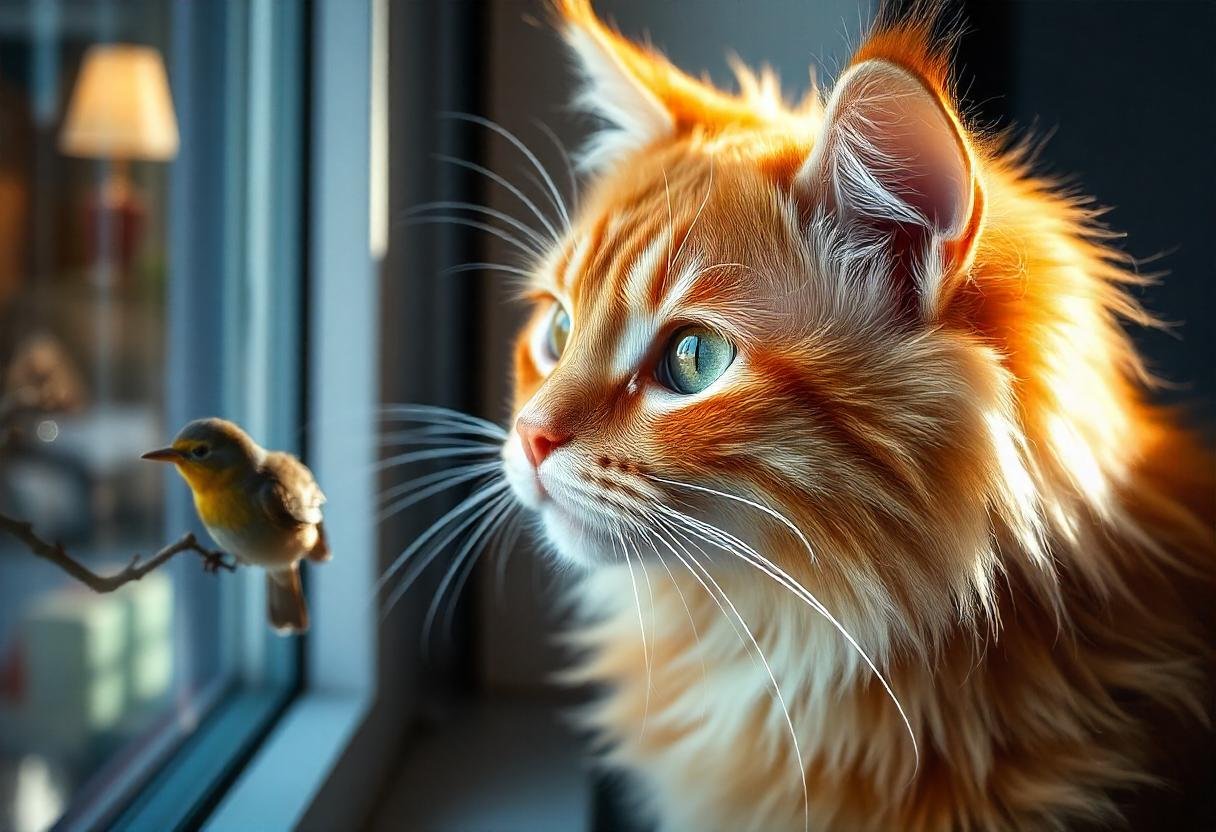Ever heard your cat making a series of rapid, clicking sounds, almost like a bird chirping or a machine gun firing? This unusual vocalization, known as cat chattering, is often accompanied by a wide-eyed, intense stare at a specific object, usually something moving outside a window. While it might sound like a strange and sometimes comical behavior, cat chattering is actually a fascinating, instinctual response with a specific purpose.
Understanding the Sounds of a Cat
Cats are known for their unique communication style, using a range of vocalizations to convey their emotions and needs. These sounds include meows, purrs, hisses, growls, and, of course, chattering.
- Meows: Meows are typically used to communicate with humans, often to demand attention, food, or playtime.
- Purrs: Purrs are a sign of contentment and relaxation, often heard when a cat is happy or feeling secure.
- Hisses and Growls: Hisses and growls are warning signals used to express fear or aggression, often directed towards perceived threats.
Cat Chattering: A Closer Look
Cat chattering, also known as “chirping,” “twittering,” or “clicking,” is a distinct type of vocalization that’s characterized by a series of rapid, repetitive sounds. These sounds are often high-pitched and can be heard for short bursts or even for extended periods.
What Causes Cat Chattering?
Cat chattering is often associated with the following reasons:
- Hunting Instinct: One of the most common explanations for cat chattering is that it’s related to their hunting instincts. Cats, being natural predators, often focus intently on prey, and this focused attention may lead to chattering.
A Case Study: The Birdwatcher
Luna, a 3-year-old Siamese cat, is known for her fascination with birds. Her owner, Sarah, describes Luna’s chattering as “a series of rapid clicks, almost like a machine gun firing.”
“Luna loves to watch birds outside the window,” Sarah says. “She’ll sit there for hours, staring intently at them, and often start chattering. It’s almost as if she’s trying to lure them closer.”
- Prey Stimulation: Another explanation for cat chattering is that it’s a form of prey stimulation. The rapid clicking sounds might be a way for cats to simulate the sound of a small animal, such as a bird, mouse, or insect, making them feel as if they’re engaging in a virtual hunt.
A Case Study: The Imaginary Mouse Hunter
Max, a 5-year-old tabby cat, often chatters while staring at a specific spot on the wall, even when there’s no visible prey. His owner, David, describes Max’s chattering as “a series of rapid clicks, almost like he’s talking to himself.”
“Max will often sit in front of the wall and start chattering,” David says. “It’s almost as if he’s imagining a mouse behind the wall, and he’s trying to lure it out.”
- Communication: While it’s not fully understood, some experts believe that cat chattering might be a form of communication. They theorize that cats might use chattering to communicate with other cats, either to share information about prey or to signal their presence.
A Case Study: The Communicator
Oliver, a 4-year-old Persian cat, often chatters when he’s interacting with other cats. His owner, Jessica, describes Oliver’s chattering as “a series of soft clicks that he seems to use to signal his interest.”
“Oliver loves to play with other cats,” Jessica says. “He’ll often use chattering to signal his desire to play or to show them that he’s interested in their presence.”
- Excitement and Stimulation: Cats may also chatter when they’re feeling excited or stimulated. This is especially common when they’re watching something moving outside a window or when they’re involved in a particularly engaging play session.
How to Interpret Cat Chattering
While cat chattering might sound odd, it’s generally a harmless behavior. It’s often a sign of your cat’s natural hunting instincts and their curiosity about the world around them. However, if you notice any other unusual behaviors, such as excessive vocalization, aggression, or a change in eating habits, it’s essential to consult a veterinarian to rule out any underlying medical conditions.
Conclusion:
Cat chattering is a fascinating behavior, often related to a cat’s hunting instincts and their curiosity about the world around them. While it might sound strange, it’s generally harmless and a testament to their unique personality. By understanding the reasons behind this behavior and engaging in interactive play with your cat, you can foster a healthy and fulfilling relationship with your feline companion.

Leave a Reply